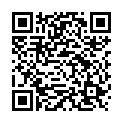|
|
|
| Module code: MAM_19_V_1.06.BIT |
|
|
3V+1S (4 hours per week) |
|
5 |
| Semester: 1 |
| Mandatory course: yes |
Language of instruction:
German |
Assessment:
Oral examination 20 min. (80%), presentation (20%)
[updated 04.11.2020]
|
MAM_19_V_1.06.BIT (P241-0018, P241-0019) Engineering and Management, Master, ASPO 01.10.2019
, semester 1, mandatory course, Specialization Process Engineering
MAM_24_V_1.06.BIT Engineering and Management, Master, SO 01.10.2024
, semester 1, mandatory course, Specialization Process Engineering
|
60 class hours (= 45 clock hours) over a 15-week period.
The total student study time is 150 hours (equivalent to 5 ECTS credits).
There are therefore 105 hours available for class preparation and follow-up work and exam preparation.
|
Recommended prerequisites (modules):
None.
|
Recommended as prerequisite for:
|
Module coordinator:
Prof. Dr. Timo Gehring |
Lecturer: Prof. Dr. Timo Gehring
[updated 21.03.2019]
|
Learning outcomes:
After successfully completing this module, students will have in-depth knowledge about bioprocess and environmental engineering and will be able to explain and dimension essential processes.
[updated 04.11.2020]
|
Module content:
Advanced biochemistry, advanced microbial metabolic physiology, gene regulation, taxonomy,
Advanced genetic engineering, vectors of gene transfer, viruses, plasmids, biotechnological methods for transferring genetic material to other living beings, possibilities and risks of genetic engineering, sterile technology,
Industrial microbiology, production processes for microbial products, upstream processing, downstream processing, separation processes, food technology,
- Energetic utilization of biomass in decentralized plants (plant technology and operation)
Combustion, thermal gasification, fermentation, plant technology and operating behavior
- Water treatment
Drinking water, municipal wastewater (nitri, deni, phosphate,..), industrial wastewater, aerobic/anaerobic treatment
- Environmental processes of gaseous products
Desulphurization processes, exhaust gas cleaning, exhaust air cleaning, dimensioning plants with internal cycles, total cost optimization, CO2 recovery, industrial production-integrated environmental protection,
Current aspects of bioprocess, environmental and process technology: Key topics from the fields of industrial microbiology, bioprocess engineering, environmental technology, environmental process engineering and related fields are offered. In addition to lectures, students will work on topics from current international publications in self-study, present and discuss them. Lectures from both industry and applied research, as well as visits to selected companies will also be an important part of the course. Thirdly, overarching aspects of the topics will also be examined, such as economic efficiency, ethics and global relevance. And, time will also be reserved for visiting selected relevant companies.
[updated 04.11.2020]
|
Teaching methods/Media:
Lecture, seminar, presentations by students on selected topics based on original English language literature,
Visits to important companies, plants and trade fairs, presentations by external experts, group work on dimensioning environmental technology plants,
[updated 04.11.2020]
|
Recommended or required reading:
DWA u. DVGW Arbeitsblätter: A131 etc.
ATV Handbuch: Biologische Abwassernigung
Brock et.al.: Mikrobiologie
Ottow et.al.: Umweltbiotechnologie
Fleischhauer et.al.: Angewandte Umwelttechnik
Kraume: Verfahrenstechnik
Chmiel: Bioverfahrenstechnik
[updated 04.11.2020]
|


